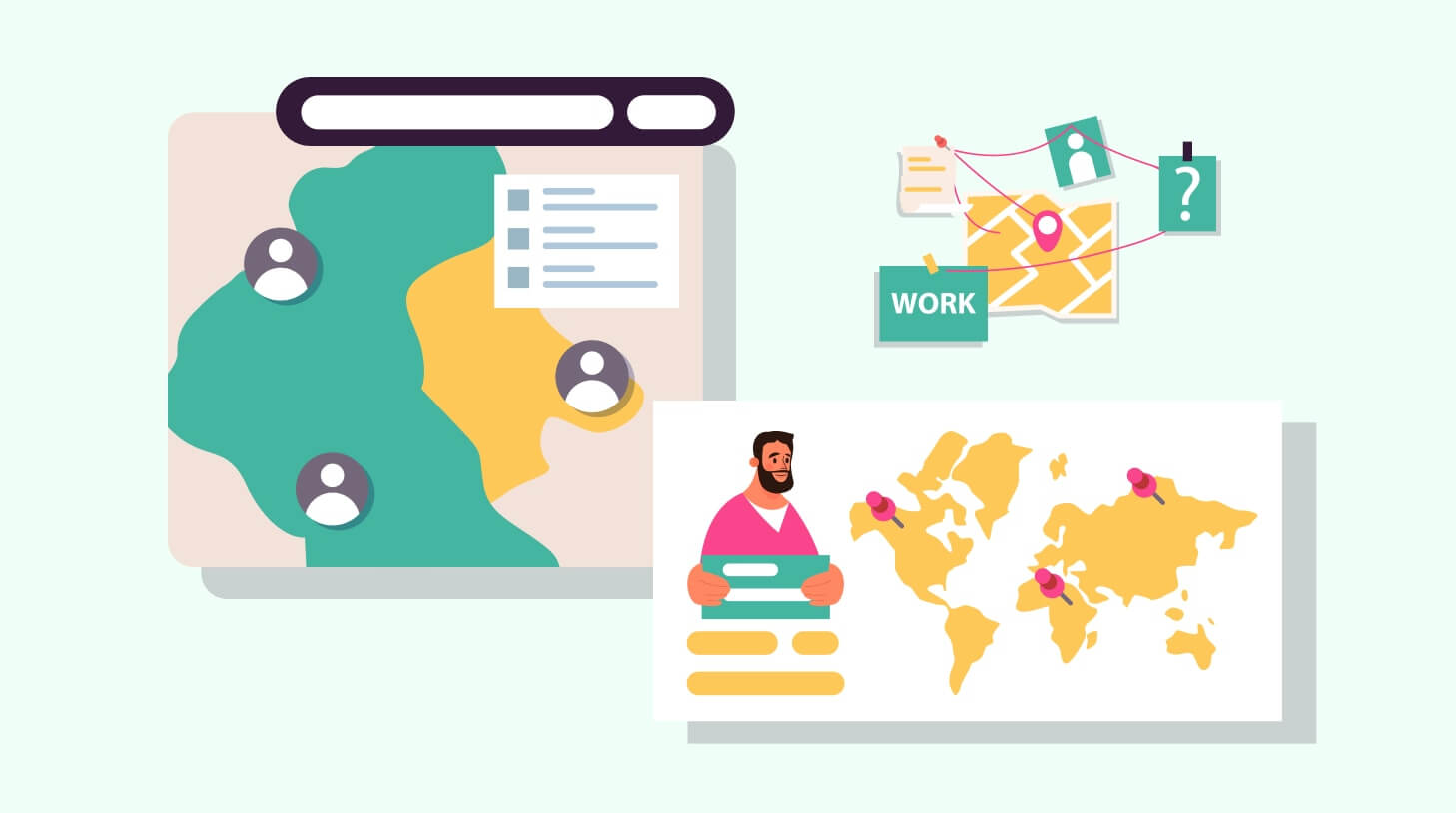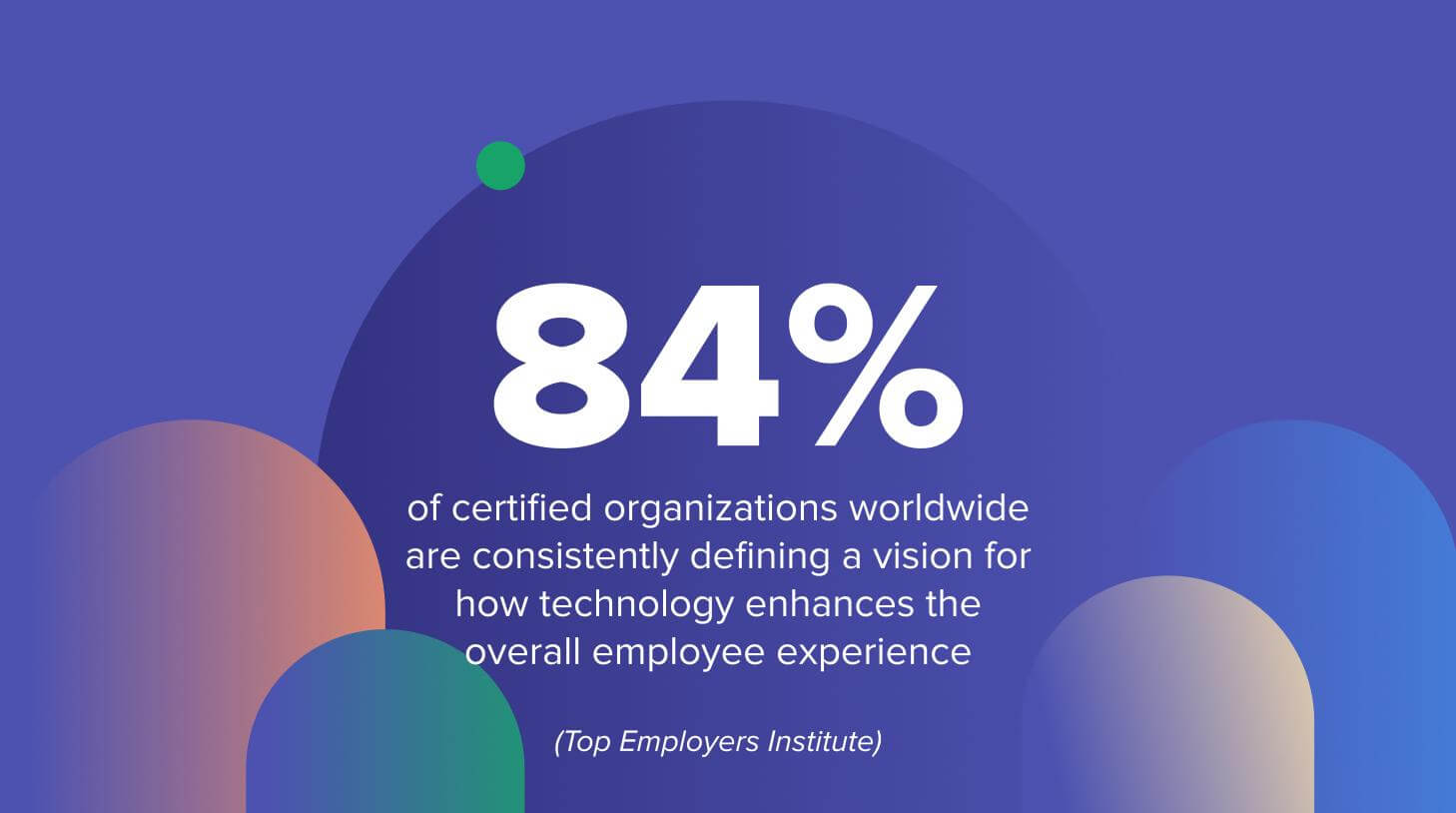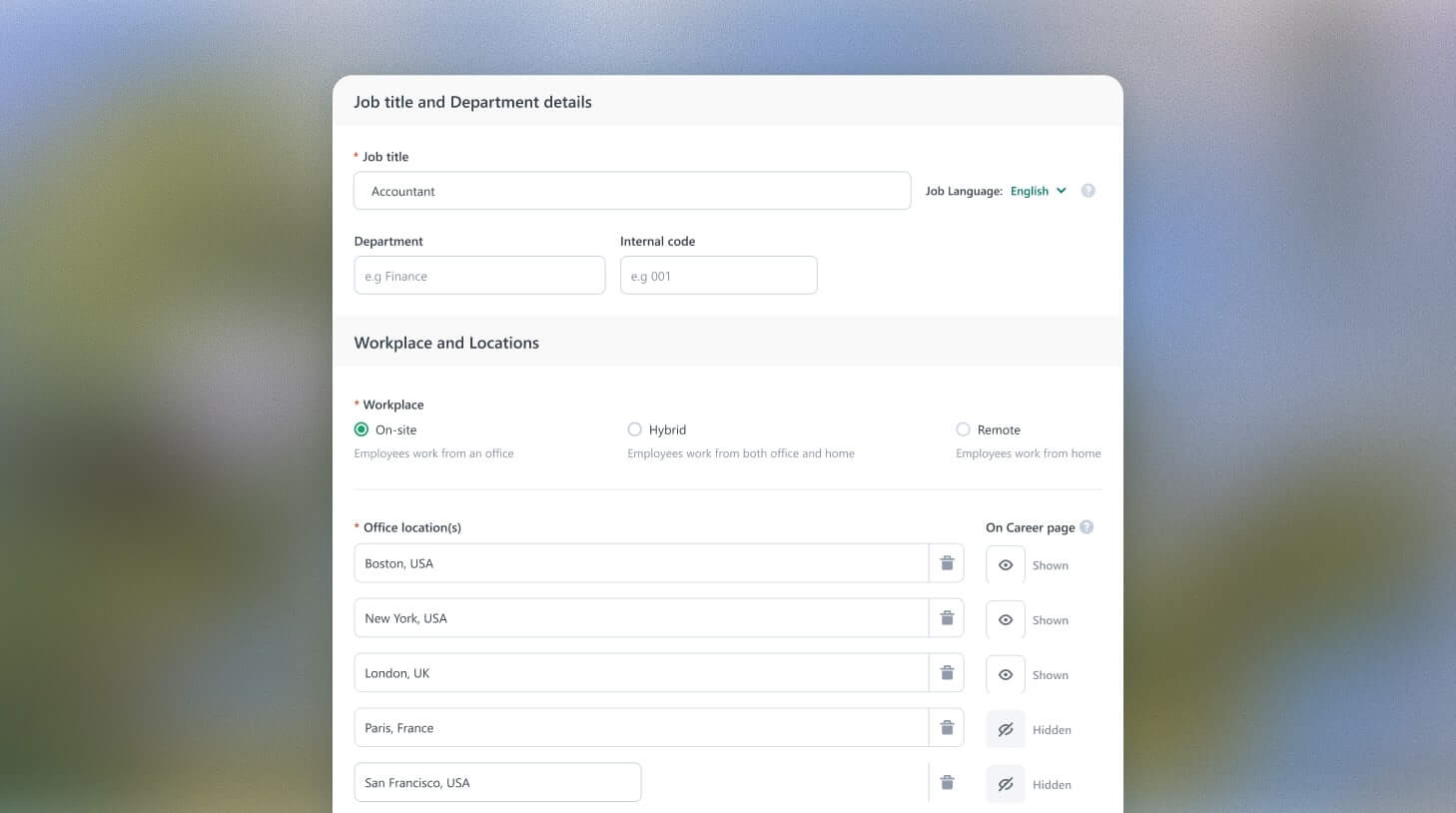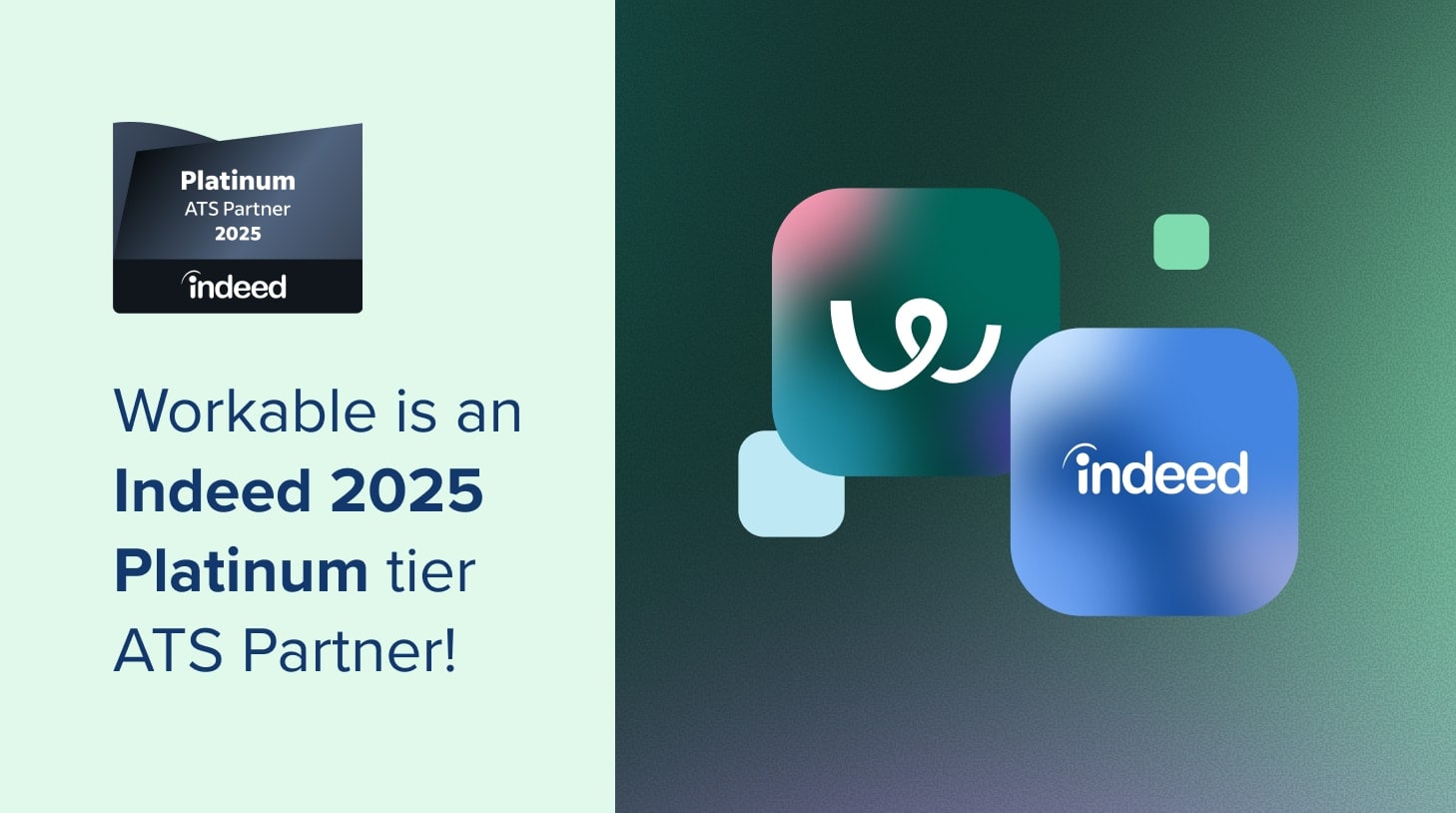Top Employers Institute on how AI is reshaping talent acquisition
From AI-driven tools reshaping talent attraction strategies to the importance of balancing technology with human touch, this interview with Jake Canull, Regional Director Americas at Top Employers Institute, offers invaluable insights into the transformative impact of AI on talent acquisition.

AI in talent acquisition has already changed the way organizations approach hiring. As AI-driven tools become more sophisticated, they are reshaping the strategies employed by leading companies to attract and evaluate top talent.To gain deeper insights into this transformative trend, we spoke with Jake Canull, Regional Director Americas at Top Employers Institute.
Contents
AI is reshaping talent attraction strategies
According to Jake Canull, “Talent leaders have been using AI-driven tools to help them hire the right people for the right roles and improve decision making since the early 2000s.”
He notes that the technology has improved incrementally over the past 20 years, with a revitalized boom in the last two years following the emergence of ChatGPT and the potential of Generative AI.
“HR and Talent teams can gain and maintain a strategic advantage against competitors by employing the most balanced talent process that consists of improved work efficiencies, and enhanced human-decision making,” Jake explains.

Top Employers Institute’s World of Work Trends report for 2024, which surveyed and certified the people-practices of more than 2,400 large organizations globally, found that “84% of Top Employers are defining a strategic vision for how technology will contribute to the overall employee experience.”
Jake Canull emphasizes that Generative AI is at the forefront of this conversation.
AI in talent acquisition transforms various aspects including candidate sourcing, resume screening, candidate matching, assessments, predictive analytics, and reporting.
These tools enable HR teams to identify potential candidates more effectively, streamline processes, and make data-driven decisions.
Jake Canull elaborates on the specific areas where AI is making a difference: “AI-powered applicant tracking systems (ATS) and talent acquisition software (TAS) can analyze resumes and job descriptions to identify relevant skills, experiences, and qualifications.
“By leveraging natural language processing algorithms, ATS platforms match candidates to job requirements, enabling recruiters to focus on the most suitable applicants.”
Enhancing accuracy and efficiency in skills evaluation
AI tools have empowered frontline people leaders and talent professionals with more accurate information at a more efficient rate than ever before.
The World of Work Trends report for 2024 found that “employee engagement scores were statistically best when both strong organizational purpose and good leadership were present.”
Jake highlights several benefits of implementing AI in the talent acquisition process, such as improvement in the time needed to hire new employees, data-driven decision making, efficiency, competitive advantage, and enhanced candidate quality.
“AI analytics tools offer hiring managers valuable insights into recruitment trends, candidate behaviors, and performance metrics, enabling them to make informed decisions, optimize recruitment strategies, and forecast future talent needs,” Jake adds.
“AI analytics tools offer hiring managers valuable insights into recruitment trends, candidate behaviors, and performance metrics, enabling them to make informed decisions, optimize recruitment strategies, and forecast future talent needs.”
The personal touch in candidate interactions
While AI in talent acquisition offers numerous advantages, maintaining a personal touch in the recruitment process can be challenging.
Jake Canull emphasizes that “maintaining personal touch in processes can only come through human context of situational empathy and compassion based on experience.”
“Maintaining personal touch in processes can only come through human context of situational empathy and compassion based on experience.”
He further explains, “It can become painfully obvious when you receive a message about a work item that feels painfully out of context. Top employers of choice invest time and resources building the right context of messaging around the most relevant use-cases.”
Top employers invest time and resources in building the right context of messaging around the most relevant use-cases.
He notes that certified Top Employers are extremely thorough when integrating AI into their talent recruitment processes, as they are accustomed to annual reviews and audits of every HR practice.
“If the systems and controls are not in place to maximize the employee’s experience, the employer may not pass certification,” he adds.
However, overreliance on technology and candidate bias are potential issues that organizations must address. Jake warns that “AI algorithms may inadvertently perpetuate or even exacerbate biases in the data used for training the models.”
Emerging AI technologies and their future impact
Looking forward, Jake Canull identifies several emerging AI technologies that he believes will have a significant impact on talent attraction and evaluation over the next five years.
These include technologies supporting neurodiversity in the workplace, AI-driven skill matching for jobs and career changes, personalized employee experiences, wellbeing management, and tying employee sentiment to organizational communication.
The World of Work Trends Report for 2024 found that “72% of Certified Top Employers expect the importance of Neurodiversity in people practices increasing by 2026.”
Jake also anticipates the rise of AI tools that tie soft skills to business outcomes.
“Hard skills help an individual get work done, and the soft-skills enable positive work environments, trust, and wellbeing. AI tools that tie soft skills to business outcomes will start appearing more too,” Jake predicts.
He also foresees the emergence of “AI-driven recommendation engines that prompt action at key moments to personalize a work experience for individual people and reinforce feelings of appreciation, support, and trust.”
Overcoming challenges in AI integration
Despite the benefits of AI in talent acquisition, organizations face challenges when integrating AI into their recruiting processes. Jake emphasizes the importance of ensuring that processes, technologies, and workflows are built with a diverse group of stakeholders to avoid bias.
“Top Employers are avoiding the negative outcomes from bias by ensuring processes, technologies, and workflows are built with a group of diverse stakeholders each step of the way,” he explains.
“For example, a high performing group of individuals may be assigned to join a committee that contains generational diversity, neurodiversity, job-level diversity, gender/ethnicity diversity, and more.
“Including differences throughout work we do is key to creating a psychologically safe space for stakeholders to mention concerns and in turn, help their employers avoid the costly mistakes that can originate from well-intended decision-makers that operate out of their own set of biases as well.”
Top Employers Institute captured an “18-percentage point increase in the prioritization of diversity, equity, and inclusion initiatives globally from 2023 to 2024,” concurrent with the continued rise of AI technology in the workplace.
Organizations must also navigate ethical considerations, data privacy, and security concerns when implementing AI recruitment platforms.
Jake Canull highlights two additional challenges: “AI raises ethical dilemmas related to using candidate data, algorithmic decision-making, and the potential impact on employment opportunities and socio-economic disparities.
“Organizations must navigate ethical considerations, uphold principles of fairness and integrity, and prioritize ethical AI practices to build trust and credibility in their recruitment processes.”
“Organizations must navigate ethical considerations, uphold principles of fairness and integrity, and prioritize ethical AI practices to build trust and credibility in their recruitment processes.”
“AI recruitment platforms rely on vast amounts of candidate data, raising concerns about privacy and security. Organizations must ensure compliance with data protection regulations, implement robust security measures, and establish transparent data handling practices to safeguard candidate information from unauthorized access or misuse,” he adds.
New skills for HR professionals in the age of AI
To stay relevant and maximize the potential of AI in talent management, Jake Canull advises HR professionals to focus on three key skills: curiosity in asking the right questions, algorithmic literacy, and discernment in decision-making.
“As someone who champions growth-mindsets rooted in gratitude, my advice is to focus on three skills that I believe will future-proof every talent management team and professional,” Jake shares.
An article by Jessica Kim-Schmid and Roshni Raveendhran in Harvard Business Review published in fall of 2022, stated, “One way to reduce algorithm aversion is to help users learn how to interact with AI tools.
“Talent management leaders who use AI tools for making decisions should receive statistical training, for instance, that can enable them to feel confident about interpreting algorithmic recommendations.”
Jake Canull wholeheartedly agrees with this statement. “There tends to be a delay between commercial ready items and Discernment in decision-making: this is learned through years of experience and this lesson never stops.
“The Institute for Digital Transformation puts it this way: ‘Discernment involves the ability to make sound judgments and decisions by analyzing and understanding situations or information through a careful examination of the details.
“It is a cognitive process that involves evaluating and differentiating information to make informed decisions.'”
AI is undeniably transforming the landscape of talent acquisition, offering organizations new ways to attract, evaluate, and retain top talent.
As Jake Canull and the insights from Top Employers Institute demonstrate, embracing AI-driven tools can provide a competitive edge, streamline processes, and enhance decision-making.
However, the successful integration of AI requires a balanced approach that combines technology with human judgment, empathy, and a commitment to diversity, equity, and inclusion.
As AI in talent acquisition continues to evolve, HR professionals must adapt and acquire new skills to harness its full potential in talent management.
Frequently asked questions
- What impact is AI having on talent acquisition?
- AI is transforming talent acquisition by streamlining processes, improving candidate sourcing, and enabling data-driven decision-making. AI-powered tools like applicant tracking systems and talent acquisition software enhance efficiency and accuracy in hiring, providing a strategic advantage to organizations.
- How are AI-driven tools enhancing recruitment strategies?
- AI-driven tools analyze resumes and job descriptions, match candidates to job requirements, and offer predictive analytics. This allows recruiters to focus on the most suitable applicants, improving hiring accuracy and efficiency. The tools also provide valuable insights into recruitment trends and candidate behaviors.
- What challenges do organizations face with AI integration in recruitment?
- Organizations must address potential biases in AI algorithms, ethical considerations, and data privacy concerns. Ensuring diverse stakeholder involvement in AI processes and adhering to data protection regulations are crucial for mitigating these challenges and maintaining fairness and security.
- How do AI tools balance technology with human touch in recruitment?
- While AI enhances efficiency, maintaining personal touch is vital. Human empathy and contextual understanding are essential for effective communication and candidate experience. Top employers invest in building the right context around AI-driven processes to ensure a balanced approach.
- What future trends in AI-driven talent acquisition should we expect?
- Emerging trends include AI technologies supporting neurodiversity, personalized employee experiences, and skill matching for career changes. AI tools that tie soft skills to business outcomes and recommendation engines for personalized work experiences are anticipated to significantly impact talent acquisition.




